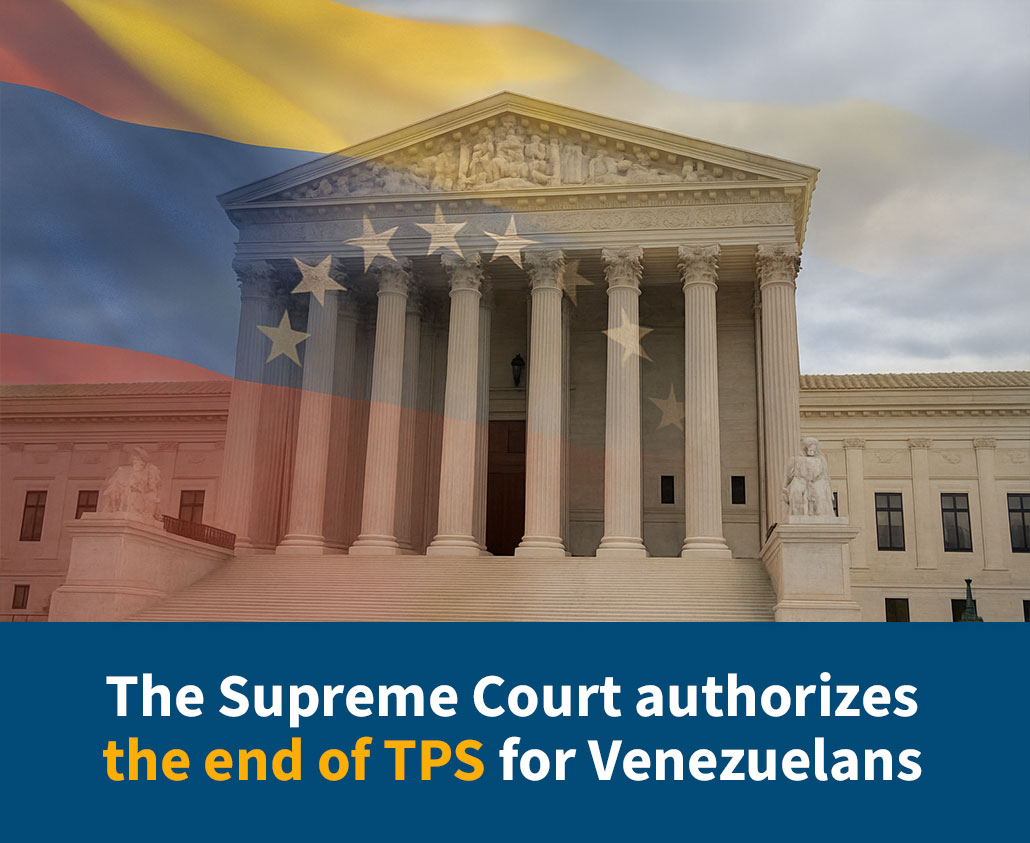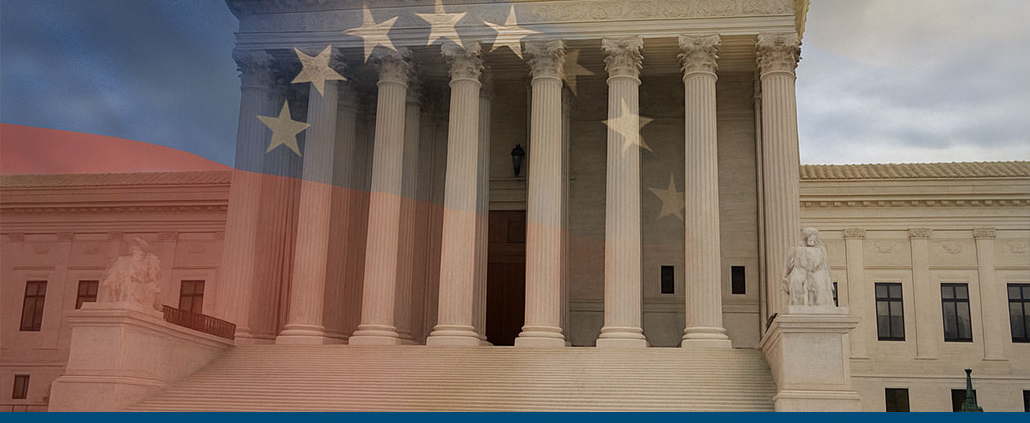U.S. Supreme Court Authorizes End of TPS for Venezuelans in the United States

In a 6–3 ruling, the Supreme Court overturned a previous injunction that had blocked the termination of Temporary Protected Status (TPS), paving the way for the Department of Homeland Security to end the program for Venezuelan nationals.
On October 3, 2025, the Supreme Court of the United States issued a decision marking a turning point in the nation’s immigration policy. In a divided 6–3 vote, the Court allowed the Trump administration to move forward with ending the Temporary Protected Status (TPS) granted to more than 300,000 Venezuelan citizens.
This ruling effectively ends, at least temporarily, a humanitarian protection that had been in place since 2021 and safeguarded thousands who fled Venezuela’s political, economic, and social crisis.
TPS for Venezuelans was first designated by the Department of Homeland Security (DHS) in March 2021 under the Biden administration and later extended until October 2026.
However, in June 2025, the new administration issued an official notice to revoke the designation, arguing that conditions in Venezuela had improved and that the program had been “misused” for political purposes.
Several pro-immigrant organizations and TPS beneficiaries filed class-action lawsuits before the U.S. District Court for the Northern District of California, claiming that the revocation violated the Administrative Procedure Act (APA) and the principles of due process.
Judge Edward Chen granted a preliminary injunction, keeping TPS in effect while litigation continued. Nevertheless, the federal government appealed directly to the Supreme Court, requesting that the injunction be lifted—a request that was ultimately granted.
In its majority opinion, the Supreme Court held that Congress had granted broad discretion to the Executive Branch to designate, extend, or terminate TPS programs under Section 244 of the Immigration and Nationality Act (INA).
The Court emphasized that lower courts cannot substitute their judgment for the Executive’s political and diplomatic discretion in immigration matters, especially when such decisions carry international implications.
The dissenting opinion, written by Justice Ketanji Brown Jackson and joined by Justices Sotomayor and Kagan, argued that lifting the injunction places thousands of people who depend on humanitarian protection at immediate risk, and that the Executive had not provided sufficient evidence of substantial changes in Venezuela to justify ending TPS.
The decision does not represent a final judgment on the legality of the revocation but rather allows its implementation while the underlying lawsuits proceed.
In practice, the Department of Homeland Security could begin, in the coming months, the formal notification and termination process of TPS status, affecting both those with valid work permits and those in the process of renewal.
For Venezuelan TPS holders, this means:
- Protection from deportation could expire within 6 to 12 months, depending on the implementation timeline.
- Work permits (EADs) tied to TPS will no longer be valid once the program ends.
- Beneficiaries will need to explore other legal immigration avenues (asylum, adjustment of status, parole, humanitarian visas, etc.) to avoid falling out of lawful status.
Various human rights organizations described the measure as a setback for humanitarian protection, noting that Venezuela continues to face a severe institutional and human rights crisis.
Meanwhile, Department of Homeland Security officials defended the decision as an act of strict legal compliance, arguing that TPS was never intended to be a permanent status.
The ruling also carries significant political implications, reinforcing the Executive Branch’s authority over immigration programs—an issue historically marked by tension between the Judicial and Executive powers.
The Supreme Court’s October 3, 2025, decision reaffirms the primacy of the Executive in managing temporary protection programs and redefines the limits of judicial intervention in immigration policy.
However, it also leaves deep questions unresolved about the protection of displaced persons and the humanitarian reach of U.S. immigration law.
In a polarized political context, and with more than 300,000 Venezuelans affected, the ruling not only sets a legal precedent but also poses an ethical and social challenge that will test the values of justice and humanity within the U.S. immigration system.
📌Official Sources:
https://www.federalregister.gov/citation/86-FR-13574







